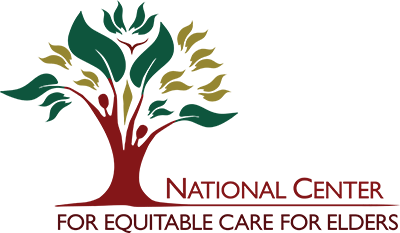About
The National Center for Equitable Care for Elders presented a four-part series on health care integration among older adults. The objective was to develop/conduct a readiness assessment around health centers’ readiness to care for older adults and integrated delivery of health care (primary care, dental, and behavioral) and the extent of provider training on integrated delivery for older adults with co-morbid chronic diseases
Expected Outcome: Development of a readiness assessment toolkit for health centers’ and providers’ integration readiness. Share and identify best practices used in partner health centers.
Session Topics and Objectives
The four sessions covered a variety of topics and objectives, including:
Session 1: Aging and Common Chronic Medical Conditions
1. Understand the normative aging process.
2. Understand common chronic medical conditions among adults 65 and over.
3. Understand the interplay between chronic co-morbid conditions (medical, dental, and behavioral) and the role polypharmacy plays.
4. Share ideas and best practices for caring with older adults with chronic co-morbid conditions
Session 2: Readiness for Caring for Older Adults
1. Learn about obstacles to readiness for caring for older adults including workforce issues, financial burden, lack of specialty/referral services, and physical infrastructure.
2. Share ideas and best practices on meeting the challenges of readiness to care for older adults
Session 3: Considerations in Integrated Training and Care Delivery: Focus on Oral Health
1. Understand the impact of silo’ed care on older adults.
2. Learn about models of integrated provider training with specific focus on primary care and oral and behavioral health integration for older adults with chronic, co-morbid conditions.
3. Learn about models of integrated care delivery with specific focus on primary care and oral and behavioral health integration for older adults with chronic, co-morbid conditions including exploration of the patient-centered medical home (PCMH).
4. Share ideas and best practices of integrated training and care delivery for meeting the needs of older adults with chronic, co-morbid conditions.
Session 4: Considerations in Integrated Training and Care Delivery: Focus on Behavioral Health
1. Understand the impact of silo’ed care on older adults.
2. Learn about models of integrated provider training with specific focus on primary care and oral and behavioral health integration for older adults with chronic, co-morbid conditions.
3. Learn about models of integrated care delivery with specific focus on primary care and oral and behavioral health integration for older adults with chronic, co-morbid conditions including exploration of the patient-centered medical home (PCMH).
4. Share ideas and best practices of integrated training and care delivery for meeting the needs of older adults with chronic, co-morbid conditions.
5. Conceptualize and draft the readiness assessment toolkit.
Request Access to Resources
Registered participants: Email us to access materials for each of the sessions.
Interested in accessing materials from this learning collaborative but you're not affiliated with a HRSA-funded health center or look-alike? Contact us with information about your organization and intended use of our materials.
